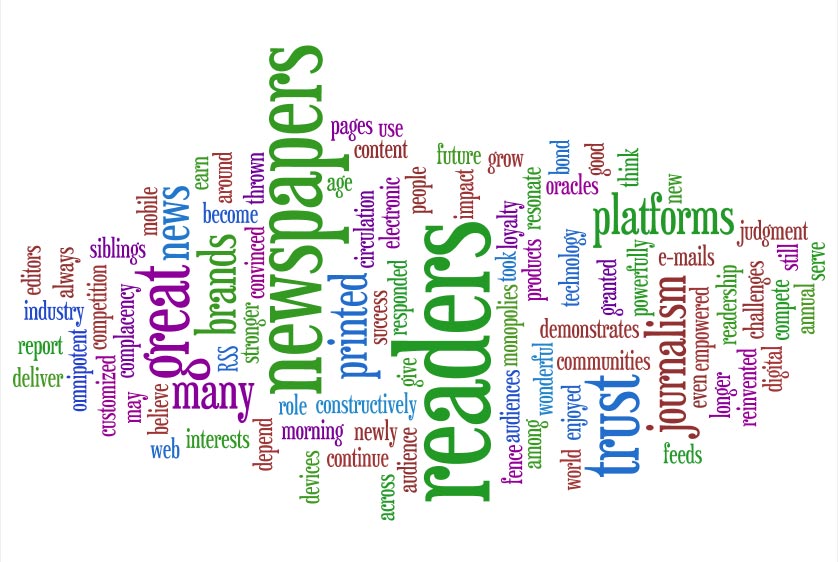Prominent board members of the World Editors Forum (WEF) have resigned their posts and re-grouped to form a new international network for editors from all mediums in response to the rapid acceleration of media convergence.
The Global Editors Network (GEN) will be headed by former WEF president Xavier Vidal-Folch, deputy director of the Spanish daily newspaper El Pais and former vice-president Harald Stanghelle, political editor of the Norway’s largest newspaper, Aftenposten. Both men, who will remain on the WEF board, will hold the same positions as they previously held in the newly-formed GEN, which is to be officially launched on 23 March 2011.
Vidal-Folch and Stanghelle both resigned their posts from the WEF board on 14 February 2011, according to WEF’s website. The same page shows that Roman Gallo, the founder of now defunct hyperlocal newspaper project the Naše Adresa in the Czech Republic, resigned on the same day. And, earlier this month, WEF director Bertrand Pecquerie also stepped down.
A full list of the GEN Board members and founding members will be released on launch, according to its website.
A source told Journalism.co.uk that the aim of the new organisation is to gather editors from all platforms (print, broadcast, online, mobile and wire services) and to create an “Editors’ Lab” for new editorial services and new applications.
GEN has published its full manifesto online, reproduced in part below:
We, the editors-in-chief and senior news executives founding the Global Editors Network (GEN), are convinced that news producers and newsrooms across all platforms – print, broadcast, online, mobile and wire services – face comparable challenges.
Because digitalization and broadband access accelerate media convergence, we are members of the same community, all driven by a journalistic imperative and a common goal: Content and Engagement First!
As we are entering a new era for content across multiple platforms, we will:
- break the barriers between editors of old and new media, print and digital, general interest and specialized publications, free and paid business models, profit and non-profit organisations, international and local media outlets;
- understand the new news ecosystem based on immediacy, information overload and disintermediation: media are no longer middlemen and users blur the lines between production and consumption in a new world of prosumption;
- define a vision for the future of journalism, cross-media strategies, attention and audience analysis, newsroom management, dynamics of the news business and ethical values. Lack of vision is the worst that can happen to our community;
- welcome new players within the newsroom’s collective intelligence: engineers, developers, visual designers, app-makers, community managers, curators, aggregators, researchers and other practitioners of the link economy who enrich our vision;
- enhance the quality of journalism in its different dimensions: newsgathering, news curation, storytelling, fact and data checking, designing, moderating and sharing, regardless of the platform, browser or application used;
- continue experimentation and innovation. We consider that mobility, users’ engagement, personalisation, location-based news, data-driven journalism and rich media are key to the future of journalism;
- encourage mutualisation and co-operation between media. Among us, we are not competitors, but… potential partners. Resulting in the emergence of a new culture among senior news executives and new cross-offerings for consumers;
- convince media owners that slashes in editorial expenses are no longer a good answer for media outlets because – even for digital natives – content and engagement will make the difference, not only the technology;
- stop acting like victims of disruptive technologies or lack of citizenship. We are optimistic about the new digital tools and the new channels of distribution offered to us as news producers;
- reinforce the pillars of credibility of our profession based on context, accuracy, relevance, reliability, loyalty to the audience, effectiveness and connectedness, as citizens’ distrust is the main threat for our civil societies.
Interested parties are invited to contribute to the manifesto here. You can also follow GEN on Twitter @EditorsNet.
The World Association of Newspapers (WAN), the parent organisation to WEF, merged with IFRA, the worldwide news research and services organisation, in June 2010.
